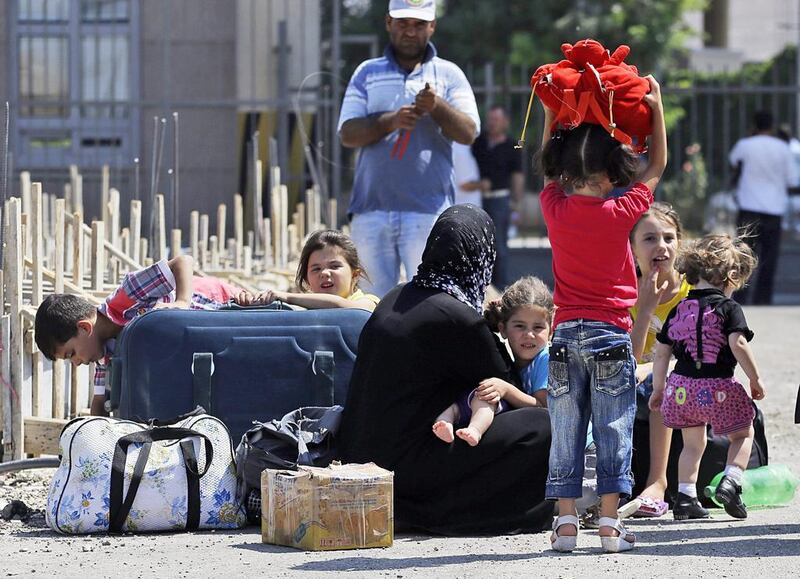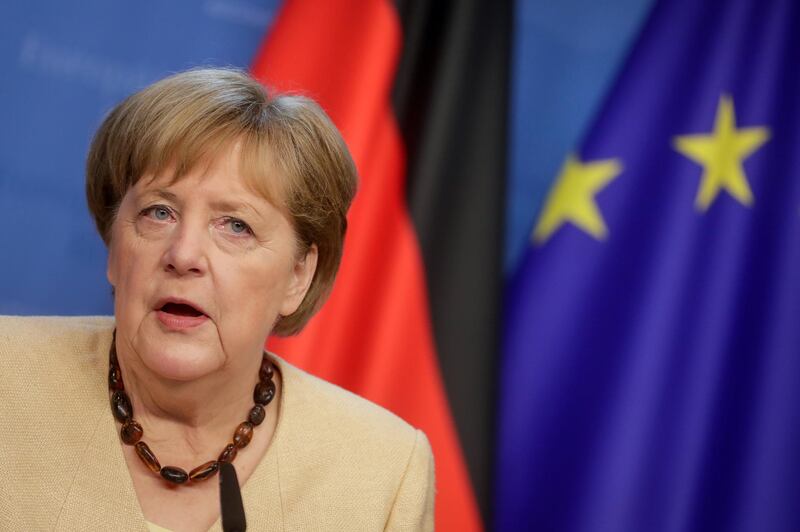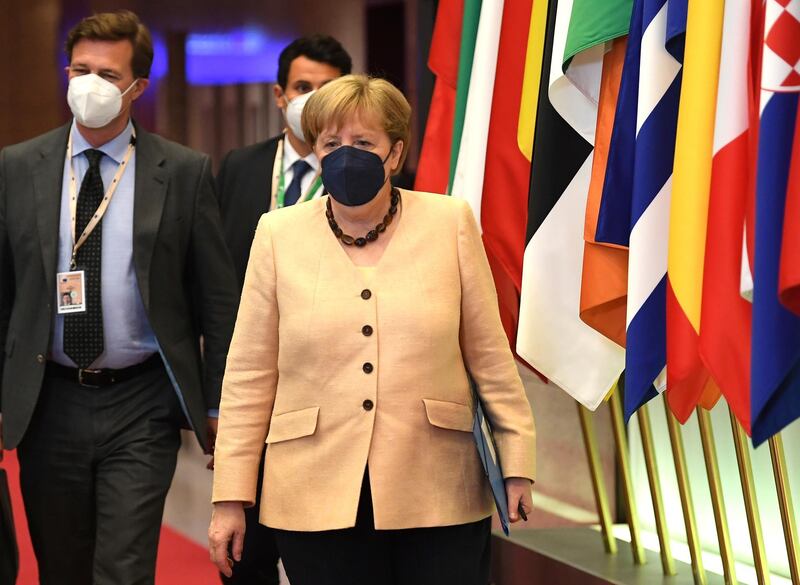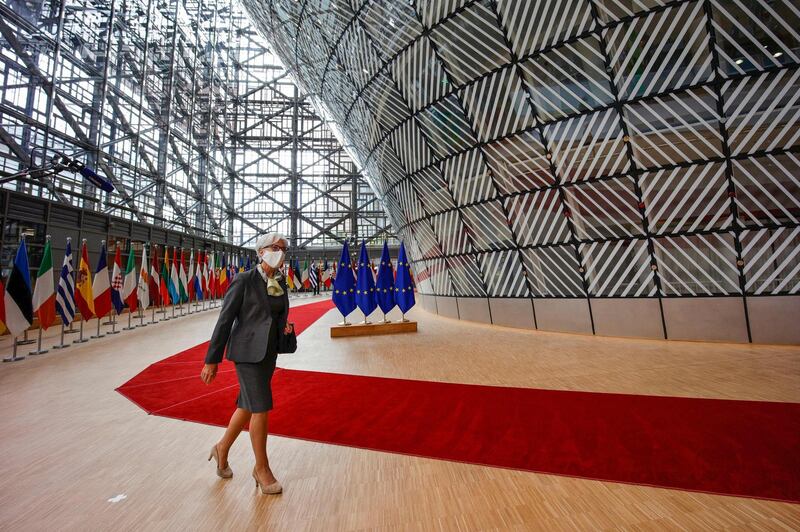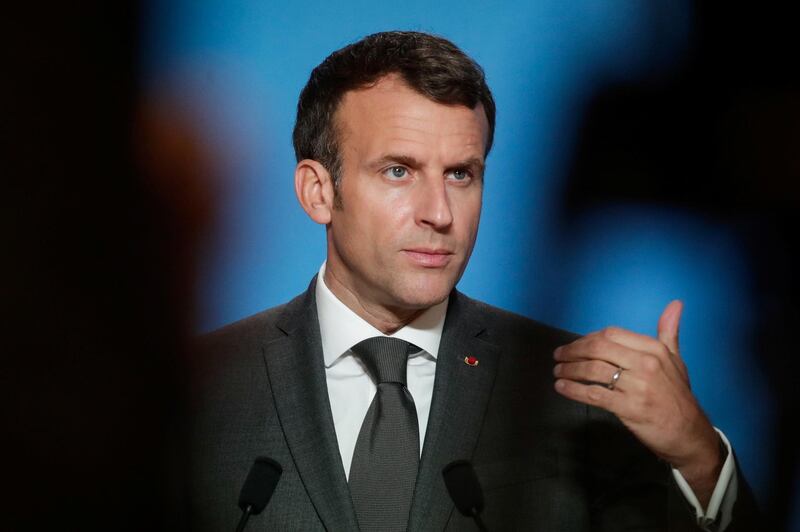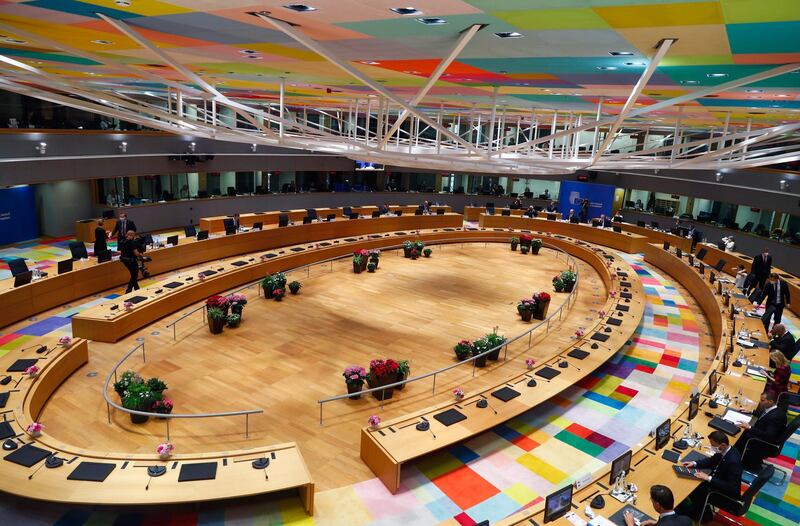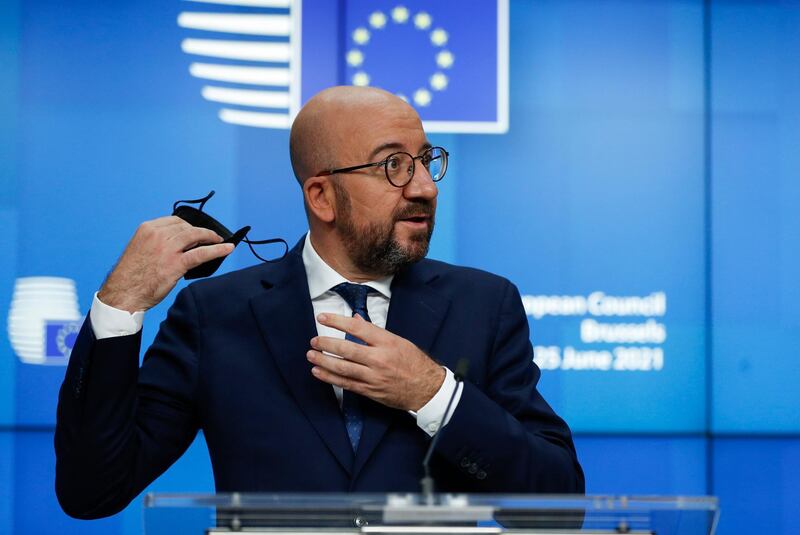The EU announced plans on Friday to increase its funding for Turkey to look after Syrian refugees as the bloc’s leaders hailed an improvement in relations with Ankara.
Brussels plans to give Turkey an extra €3 billion ($3.6bn) over the next three years to help manage the millions of refugees on its territory.
It adds to the €6bn offered to Turkey under a 2016 deal, in which Ankara agreed to guard Europe's borders after the previous year's refugee crisis.
Ursula von der Leyen, the President of the European Commission, said Europe wanted the funds to improve the social and economic conditions of migrants in Turkey rather than go towards “plain, pure emergency assistance”.
“These refugees have been living for years in the region and they need a perspective for the coming years,” she said.
“It is now 10 years into the Syrian conflict and the region still carries the lion’s share of the burden, and it is in our collective European interest to protect the refugees and support their hosts.”
Another €2.2bn in EU funds will go to Lebanon and Jordan to support Syrian refugees who live in those countries.
The package was approved by EU leaders at a European Council summit held on Thursday and Friday, with full details to be worked out by the Commission.
Speaking after the summit, Ms von der Leyen welcomed an improvement in relations with Ankara after a stormy period last year.
“Overall the relations with Turkey have improved recently,” she said.
“There is a de-escalation in the Eastern Mediterranean, there are talks between Turkey and Greece and that’s a good starting point.”
But there was little to no progress on Cyprus, she said.
German Chancellor Angela Merkel said the EU would continue to work on improving its customs arrangement with Turkey.
“We have seen an improvement of the situation in the Mediterranean Sea,” she said. “Of course, we expect further constructive behaviour from Turkey.”
Cool reaction from Ankara
Turkey reacted coolly to the migration plan, which it described as a way to “ensure the EU’s own peace and security”.
“Reducing co-operation on migration to a financial dimension is a big delusion,” the Turkish Foreign Ministry said.
It called for greater co-operation between Turkey and the EU and a review of the 2016 deal, echoing a call by Germany's Foreign Minister Heiko Maas this week.
The 2016 pact has been criticised by human rights groups who say Turkey is not safe for refugees and migrants.
A dispute erupted last year after Turkey opened its border and allowed thousands of people to enter Greece.
An EU communique said preparatory work was under way for co-operation with Turkey on issues such as climate change and counterterrorism.
The council said it expected Turkey to “contribute positively to the resolution of regional crises”.
The withdrawal of Turkish forces from Libya is a sticking point in the country’s peace process, which is expected to conclude with elections this year.
The EU called on Friday for the “withdrawal without delay of all foreign forces and mercenaries”.
Leaders of the 27 EU nations also discussed the economic recovery from Covid-19, calling for efforts to boost global production of vaccines.
Brussels hailed the introduction of an EU-wide digital health pass as a step towards resuming travel across Europe.
But fears over the rise of the Delta variant prompted Ms Merkel to recommend tougher restrictions on countries such as Britain, where the strain is spreading.
Berlin wants EU countries to follow its lead by ordering British travellers into quarantine to stem the growth of the variant.
“We must do everything to prevent a fourth wave,” Ms Merkel said.
